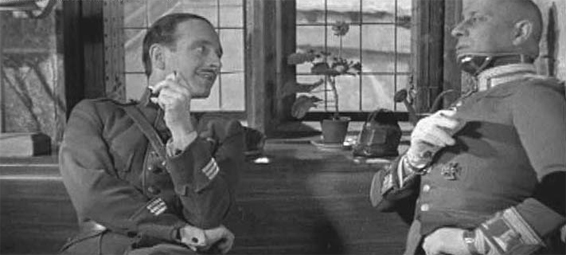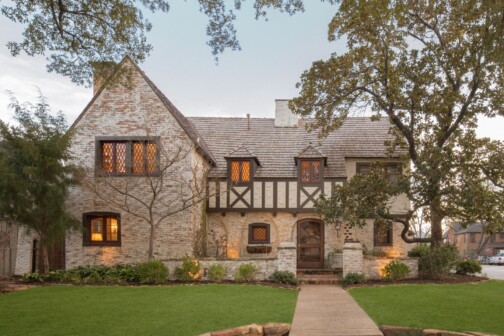On the occasion of the 75th anniversary of the Jean Renoir’s masterwork, La Grande Illusion, the production company Rialto has released a newly restored print of the film (which is, I must add, exquisitely crisp), occasioning its re-release at the Angelika Film Center this weekend. The anniversary is as good an excuse as any to return what is widely considered one of the great works of cinema to theaters this summer. Released in 1937, amidst the heightening tension of the rise of the German Third Reich, a political manifestation clearly seen in Renoir’s film as an after effect of the still unresolved conflicts of the First World War, Grand Illusion is more than just a seminal anti-war film. It is a human, feeling, and often hilarious drama.
Set during the First World War, Boeldieu (Pierre Fresnay) is a French aristocratic officer captured by the Germans along with his debonair lieutenant, Maréchal (Jean Gabin). The two are lumped together with a handful of other French POWs who represent a cross section of French society: an actor, a Jew. A far cry from the stricken camps of World War II, the French POWs live with many of life’s luxuries while imprisoned. In a scene reminiscent of Goodfellas (1990) (though Scorsese is likely winking at Renoir’s film) the French military men gab and joke in their “cell” about life and love over caned delicacies and fine wine shipped in from home. Nonetheless, the group is determined to escape by tunneling out of the cell. The intent to escape is not really to find relief from unbearable suffering (their life in the POW camp is actually somewhat enviable), but rather, as one of the prisoners states simply at one point, “Jail is made to escape from.” It is the nature of the thing – breaking free is a manifestation of the orientation of the French spirit towards liberty.
The POWs become renowned for their ability to evade incarceration, and they are eventually recaptured and locked up in an impenetrable castle in the German Alps, a high-security prison overseen by the regal Rauffenstein (magnificently played by the great Erich von Stroheim), a disfigured German officer who is a figure of grace and aristocratic honor, of gentility and practical nobility. He takes to his French counterpart, Boeldieu, and the pair’s conversations about life and country, war and peace comprise the heart and conscious of Renoir’s film, which begins to reveal its hand in the dialogues. This is a film about the waning of ways, the sun setting on oldEuropeand a weighing of the implications of new social order. One reading of title, “grand illusion,” is to see it as a reference to the hereditary authority and the deference towards aristocracy that have given western civilization its shape and mores.
Set against these dialogues, a number of vignettes play out: an officer’s self-sacrifice, the motives of the individual prisoners (including the Jew, Rosenthal (Marcel Dalio), whose self-serving interests possess a tinge of anti-Semitism), a humorous scene involving the Russian prisoners whose young Soviet government sends a care package filled not with the expected delights of food and drink, but rather books. The film’s concluding passage is Renoir’s grand gesture of hope. In it, Maréchal and Rosenthal finally escape the castle and take refuge with Elsa (Dita Parlo), a blond German war widow living alone on dairy farm with her only daughter. Here Renoir offers a pastoral that dilutes the concept of nation (“These ‘German’ cows remind me of my uncle’s cows,” Maréchal reflects at one point). Even though he does not speak German, Maréchal falls for the beautiful farm woman, and she him, and their love represents a healing, of sorts, of the scars of the front.
Three quarters of a century later, Grand Illusion remains a jarring and pertinent film, not merely because of its persisting themes or that it remains funny, enjoyable, moving, and endearing. But Grand Illusion finds new resonance particularly at this historical moment, in light of the fracturing seams of European cohesiveness, the grumbling undertone of renewed anti-Semitism in places like Greece, the perceived dominance of Germany on the continent, and the political face-off between France and Germany – the large European powers and the secondary (at least economically speaking) states whose floundering finances threaten to tear Europe apart. Into this context, Renoir’s film brings a consideration of social and political structures that underpin civilization. Grand Illusion is a film about war andEurope, about class and politics, but it is, fundamentally, a working out of the tension between civilization and anarchy – a consideration of what makes us human, and in spite of our tendencies towards war, what is required of the human heart to realize peace.






